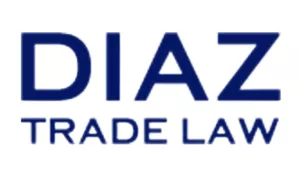- within Intellectual Property topic(s)
Many mistake the ease of importing to mean there is no liability or obligation on the part of the importer. Whether your company is new to importing, or has been in the business for years, CBP expects importers to use "reasonable care" to ensure compliance with relevant rules and regulations. Importers are at risk of being subject to enforcement actions by CBP if they do not comply with the reasonable care standard when importing goods into the U.S. This article provides an overview of CBP's expectations of an importer and practical advice on what you must have in your import compliance plan.
How Did We Get Here?
December 8th, 1993, the Dow Jones reached a record high of 3734.53, Janet Jackson's "Again" remained number one on the charts, and President Bill Clinton signed the Customs Modernization Act (Mod Act). The Mod Act altered the import compliance landscape by making it the responsibility of the importer to classify items, determine their value, etc. The law also imposed a legal obligation to use "reasonable care" in doing so, or else Customs could (and would) impose penalties.
What Exactly is "Reasonable Care"?
Reasonable care requires importers to conduct themselves as a reasonable importer would under the circumstance with respect to importing goods into the United States.
Reasonable care requires importers to:
- Meet the standard to enter, classify and determine the value of imported goods
- Provide other information necessary to aid CBP in properly assessing duties and collecting accurate statistics
- Determine whether other applicable legal standards and requirements have been met
CBP is required to provide the public with guidance on their legal obligations regarding customs and trade regulations. CBP's Informed Compliance Publication, What Every Member of the Trade Community Should Know: Reasonable Care, provides valuable insights for importers to utilize in ascertaining whether their current processes follow CBP's reasonable care standard.
Import Compliance is a Continuous Process
Trade is a constantly changing industry. Regulations and guidelines are updated frequently, and supply chains shift often. Below are practical compliance tips on key topics under the umbrella of reasonable care.
Merchandise Descriptions & Classifications
Importers must also be specific with descriptions included on their commercial invoices. CBP recently sent CSMS 60011750 titled "Announcement of Vague Merchandise Description Cargo Messages". CBP advised the trade community that CBP regulations require a precise, or specific, description of the merchandise and that CBP is aiming to address vague cargo descriptions such as:
- General merchandise
- Gift
- Parts
- Accessories
- Consolidated
Deleon Trade LLC compiled a useful list of vague commodity descriptions to avoid here. The Canada Border Services Agency also provides a helpful resource on not acceptable/acceptable commodity descriptions here.
All merchandise imported to the U.S. is either subject to, or free of, duties in accordance with the Harmonized Tariff Schedule of the U.S. (HTSUS). The HTSUS is used to determine an imported article's duty rate and whether the article is eligible to use a free trade agreement or any other trade preference program.
Importers should:
- If relying on a broker for a HTSUS classification, double check their work
- Establish reliable procedures to provide a correct and complete description of merchandise
- Consult a customs attorney if you're unsure of the appropriate HTSUS
Product Valuation
Determining the value of imported goods is essential to calculate the total duty to be paid and often the most complicated area of Customs law.
Importers should:
- Understand the terms of sale and whether or not charges like freight, insurance, assists, indirect costs, or royalties were (or should be) included in the value.
- Keep a complete set of records from the import transaction
If you are purchasing from a related party, as defined in 19 U.S.C. §1401a(g), importers must review CBP's tests for determining the acceptability of related party pricing. CBP's Informed Compliance publication "Determining the Acceptability of Transaction Value for Related Party Transactions" is a good resource.
- If you are importing from a related party, ensure you speak with counsel to confirm you're using the appropriate valuation methodology.
Country of Origin
Determining a country of origin may seem straightforward, but often a final good has multiple components from multiple countries, making the analysis more complicated.
Importers should:
- Have a process to conduct ensure you know what raw material comes from what country and understand what specific process occurred in what country.
- Ensure every imported item is marked conspicuously and legibly.
Intellectual Property Rights
CBP works with rightsholders to prevent the unauthorized importation of merchandise which bears a recorded trademark or copyright.
When importing goods with a trademark or copyright registered with the USPTO, importers should:
- Check to see whether or not the trademark or copyright is registered with the USPTO and recorded with CBP.
- Document permission from the trademark or copyright holder.
- Importers should also always check to see if the merchandise is subject to a U.S. International Trade Commission or court ordered exclusion order.
Forced Labor
Section 307 of the Tariff Act of 1930 prohibits the importation of all goods and merchandise mined, produced, or manufactured wholly or in part in any foreign country by forced labor, convict labor, and/or indentured labor under penal sanctions, including forced child labor.
Importers should:
- Utilize the Sweat and Toil app to conduct research regarding goods produced with child labor and forced labor
- Have a process in place to track where your goods are made and under what labor conditions.
- Conduct periodic internal audits to check for forced labor in your supply chain.
- Vet new suppliers for forced labor risk.
- Put a comprehensive social compliance system in place.
- Establish a procedure to maintain and produce any required entry documentation.
Importers should also be prepared for unannounced audits of their supply chain for forced labor.
Penalties
Failing to use "reasonable care" in your import compliance plan can cost you. Pursuant to 19 U.S. Code § 1592, if Customs determines that you committed a violation, and it was the result of fraud, they can impose penalties up to the value of the import. In the case of fraud, there can also be criminal consequences, which can result in additional fines and jail time for the offender.
Failure to keep adequate records can result in more penalties. Pursuant to 19 CFR § 163.6, a willful failure to "maintain, store, or retrieve" said records (for a period of 5 years) could cost you 75% of the value of the import or $100,000, whichever is less.
Other Considerations
Import compliance goes beyond the practices outlined above. Have you considered other agencies and their regulations? The FDA is always involved when you are importing food, cosmetics, medical devices, for example. You'll need a permit from TTB to import alcohol. Do you know if your import is subject to quotas? What about countervailing or anti-dumping duties – did you check the about 700 scope rulings? Are there special labeling requirements? What about active sanctions with the country of origin? Compliance is a complex and continual process that requires the help of an experienced professional.
A Customs Attorney Can Help Your Business Set up an Import Compliance Plan
Diaz Trade Law has significant experience in a broad range of trade compliance matters, including helping companies customize their own Import Compliance Program. The program can entail developing import compliance documents, ongoing training for various departments in your business, regular internal audits, record keeping, and more.
Want live training on this topic?? Join us on May 23 at the World Trade Center Miami for a LIVE training: "Navigating CBP Regulations: Essential Practices for Import Success." You will learn top tips for importing into the United States as well as basic customs concepts like protests, seizures, liquidated damages, and the Fines, Penalties, and Forfeitures process. Register here!
The content of this article is intended to provide a general guide to the subject matter. Specialist advice should be sought about your specific circumstances.


